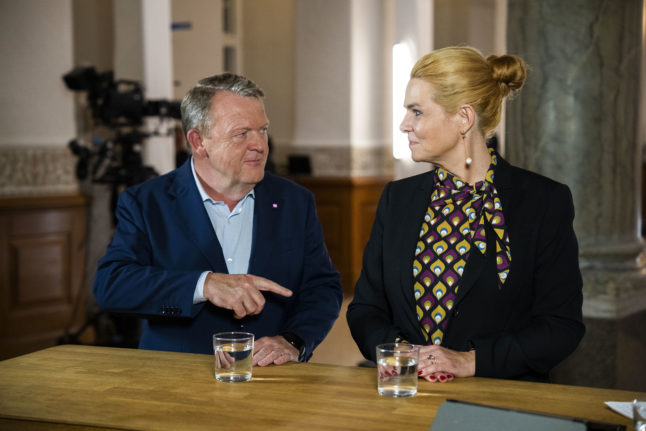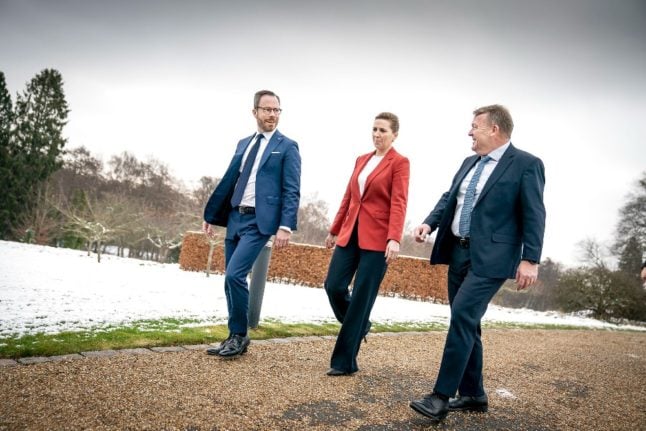New polls just over two weeks ahead of Denmark’s parliamentary election show diverging fortunes for two new parties which have threatened to shake up the existing order.
One of the polls places the ‘red bloc’ of allied parties on the left wing on 48.6 percent of the vote share, marginally ahead of the conservative ‘blue bloc’ which has 45.3 percent.
Frederiksen maintains a higher preference as the public’s choice of PM than her two rivals combined.
I statsministermålingen fra @voxmeter fortsætter de seneste ugers tendens:
Stadig flere foretrækker Mette Frederiksen som statsminister, opbakningen til Pape falder og Ellemanns tilslutning er relativt uændret.Frederiksen: 57,8 %
Ellemann: 24,3 %
Pape: 17,8 %#dkpol #fv22 pic.twitter.com/YF4DwFGulR— Anna Midtgaard Christensen (@Annamidtgaard) October 17, 2022
The Denmark Democrats, a new conservative party led by former immigration minister Inger Støjberg, have seen support fall from around 10 percent of the overall vote share to 8 percent, according to a new poll from Epinion, produced for broadcaster DR and media Altinget.
Another major polling institution, Voxmeter, also has Støjberg’s party dropping back from 9.1 points two weeks ago to 7.9 percent in the most recent survey.
An opposite trend can be seen in the other newcomer party set to enter the Danish parliament, the Moderates, led by former Prime Minister Lars Løkke Rasmussen, who formed the new centrist group after leaving the Liberals, where Støjberg served under him in government.
READ ALSO:
- Who are Denmark’s 13 political parties and what election pledges have they made?
- ‘Bloc politics’: A guide to understanding parliamentary elections in Denmark
The Moderates have gained 3.2 points over the last week to reach 6.9 percent of the vote share, according to Epinion, while Voxmeter has them moving from 3.3 to 6.1 points over a similar timespan.
Among the largest parties, the governing Social Democrats are now at 26.1 percent according to Voxmeter. That is lower than last week’s 27.5 points but up from the 23.3 percent support the party had five weeks ago.
The Liberal (Venstre) party is stable at around 14 percent according to Voxmeter, but the Conservative party is now at 8.9 percent. That is down from 11.4 percent last week and 15.1 percent five weeks ago. The Epinion poll has the two heavyweight conservative parties on similar numbers to Voxmeter.
Støjberg, the leader of the Denmark Democrats, has generally stayed away from focusing on immigration during the election campaign – a topic on which she made her name as a hardliner during her time in government.
She has demanded cuts to Denmark’s top tax rate, topskatten, from the leader Liberal and Conservative parties as a provision for backing them to lead the government should the right wing parties gain an overall majority.
The former immigration minister has also attempted to frame a political discourse around the split between urban and rural areas, positioning herself and her party as looking out for the interests of rural parts of Denmark. However, this discussion has yet to gain a real foothold in the broader election campaign, analysts have suggested.
With the Moderates edging upwards in the polls, Rasmussen has placed himself in what could be a very expedient position for negotiations once votes are cast, experts say. He has not promised to back the conservative candidates for Prime Minister, instead saying he wants a future government to include cooperation across the centre of parliament.
Theoretically, the Moderates could decide the outcome of a close election if the seats they win are enough to tip the balance in either direction.
The former PM is increasingly being spoken about as a fourth candidate in the race to be Prime Minister after November 1st, analysts say, because he may be able to make greater demands in order to support a conservative ‘blue bloc’ government.
Rasmussen has denied his ambition is to get his old job back.
“People would think this was just about being Prime Minister again. And that’s not what this is about,” he said of his current political project after being asked by broadcaster DR about his potential as a PM candidate.
The final live TV debate between the three confirmed candidates – Frederiksen, Liberal leader Jakob Ellemann-Jensen and Conservative party leader Søren Pape Poulsen, took place on Sunday night.
Commentators have rated Ellemann-Jensen’s performance positively but Poulsen has seen the popularity he enjoyed earlier this year fall away, as evidenced by the poll numbers.



 Please whitelist us to continue reading.
Please whitelist us to continue reading.
Member comments